Hundreds of scientists agree that a vegan diet brings a number of health benefits with it including a lower risk of diabetes, hypertension, arthritis, and heart disease. Unfortunately, when we eliminate major food groups, us vegans run the risk of missing out on critical micronutrients in our diet.
Today we’re going to pop the lid on a certain one of those micronutrients. You guessed it; we’re talking about Vitamin D.
By the time you finish this article, you’ll be a self-proclaimed expert and will be able to educate your vegan friends about why they need to consider a vegan Vitamin D3 supplement. You’ll know where to get it, how much to consume, and why it’s so important to our bodies.
Did you know that over 1 billion people worldwide currently have suboptimal levels of Vitamin D? You do not want to fall into this statistic. Thankfully with a little knowledge, some proper sunshine, or a Vitamin D supplement, you won’t.
Ready for a Vitamin D crash course? Let’s get started.

Vitamin D
Vitamin D, coined as the sunshine vitamin, is one of the 24 micronutrients vital for human survival. It’s a fat-soluble vitamin meaning that it dissolves well in fat or oils so for a faster, more efficient, absorption its best consumed with foods like avocados, nuts, seeds, and oils.
This vitamin is crucial because it allows our bodies to absorb calcium which supports our skeletal structure and function. Vitamin D also plays a large roll in the development and growth of cells. Maintain your Instagram bod and keep your body strong and healthy by upping your D levels---Vitamin D that is.
Vitamin D is found in five forms, but only two forms are used in the body: Vitamin D2 and Vitamin D3. We’ll focus on those two forms for this post.
Where Is It Found?
Vitamin D2 can be found in mushrooms (but only if they’re grown in UV light, as most are grown in the dark) ) and fortified foods (where the supplement is added) such as orange juice, cereal, and plant-based milk. Be sure to always check your labels.
Vitamin D3 is found in non-vegan friendly foods like oily fish, liver, egg yolks, and butter. Thankfully there are two more ways to get Vitamin D3 that don’t include sacrificing your ethics: supplements and sunshine.
Vitamin D3 is so crucial for our survival that our body produces it by itself---but there’s a catch. We can only produce the stuff when we expose our body to adequate sunlight. When our body absorbs UV light, it triggers the synthesis of Vitamin D3.
We are all about eating our nutrients….when we can. So why do we suggest a D supplement then? Read on.
Vitamin D2 vs. D3
We know you might be thinking “Why can’t I just get my supply of Vitamin D through D2 fortified foods to hit my D quota?” and we hear you loud and clear. We did the research and here are the details.
When it comes to Vitamin D2 and D3, they aren’t proven to be equals at raising your D levels. Vitamin D3 is much more efficient at doing the job, and D3 supplements are often higher quality than D2 supplements. Vitamin D3 also has the added benefit of extending your lifespan. So if you’re worried about your D levels and you have the choice, opt for consuming Vitamin D3.

Why the Sun Isn’t Always a Reliable Source of Vitamin D3
I can already hear you now, “Didn’t you say I could get Vitamin D3 from the sun?” You can, but unless you spend a few afternoons a week sunbathing, there’s a good chance you’re not getting enough Vitamin D3. Check out this article for specifics on sunbathing based on your latitude.
Many factors that affect UV absorption like weather, type of clothing, environmental factors, UV index, skin color, season, global location, and length of day. It’s difficult to consistently get enough D3 from the sun alone which is why many doctors suggest taking a vitamin D supplement.
The people who should consider supplementing the most are vegans, people with darker skin complexions, and people who live in northern climates or don’t get regular midday sun exposure.
We suggest you avoid prolonged sun exposure if you want to prevent the early onset of wrinkles and skin cancer (something us sunbathers really should take seriously) and opt for vegan Vitamin D3 supplements.

What are the Benefits of Vitamin D?
We know that we need vitamin D to absorb calcium but did you know this vitamin did more than just strengthen your bones? Let’s find out more about what this nutrient can do for us.
It Helps Fights Diseases. Optimal levels of Vitamin D reduce your risk of multiple diseases such as multiple sclerosis, heart disease, certain cancers, rickets, and common illnesses like the flu.
It Helps with Depression. A year-long study in 2010 showed a direct correlation between vitamin D supplementation and improved depression symptoms.
It Supports Weightloss. A weight loss study from Cambridge showed that the test group who took vitamin D supplements lost more weight than the placebo pill group.
We know it can be tricky to get adequate sunlight especially if you have a 9-5 office job or live in a northern climate. If this sounds like you, talk to your doctor or nutritionist; they will most likely suggest you supplement your diet with Vitamin D.
Vegan Vitamin D3 Supplements
If you can’t find time each afternoon to stand in the sun, consider popping a vegan Vitamin D3 supplement. D3 supplements come from two major sources: lanolin (sheeps wool) and lichen extract (a propriety blend from lichen called Vitashine).
If you’re vegan, you’re going to want to stay away from lanolin and opt for supplements that include the Vitashine blend of lichen. Experts suggest vegans take a supplement of 2000 IU of Vitamin D3 per day to ensure your body is running as properly as possible.
Looking for the perfect vitamin? Consider Future Kind’s Multivitamin explicitly formulated for vegans. We love these supplements because they’re completely vegan and include the three most essential micronutrients that vegan diets often lack.

Do You Suffer from Low Levels of D?
While you might not be deficient in Vitamin D, the chances are you probably don’t have optimal levels of it.
Because it is so crucial to your immune system, cognition, and bone health, the last thing you want is for your body to end up with a D-ficiency. All jokes aside, if you suspect that have suboptimal levels of Vitamin D, this is what to look out for...
Symptoms of Low Levels of Vitamin D
If you suffer from one or more of these symptoms, it could be that you have suboptimal levels of Vitamin D:
- You’re often sick
- You’re experiencing constant fatigue
- Your bones hurt
- Your muscles hurt
- You’re often sick
- You’re experiencing hair loss
- You’re feeling depressed
- Your wounds are healing very slowly
The human body is incredible but to keep it fueled properly, it needs an adequate supply of specific nutrients. Have you considered getting tested?
The first step of getting in control of your health is to ask your doctor for a 25-hydroxy Vitamin D blood test. Aim for results between 20 nanograms/milliliter to 50 ng/mL. Note that 12 ng/mL or lower indicates you’re suffering from a Vitamin D deficiency.
Are You Getting Enough Nutrients in Your Diet?
Whether you’re vegan for the animals, the environment, or yourself, we can agree the vegan diet does a lot of good for our health, but there are some things we need to do to keep our body sustained, taking vegan supplements is one of them.
Thankfully, along with a little sunlight now and then, there are vegan Vitamin D3 supplements on the market designed just for us vegans.
If you’ve been searching for a vegan Vitamin D3 supplement, we’ve got just the thing: the Future Kind Multivitamin. It’s blend of all the essential vitamins and nutrients a vegan needs: Vitamin B12, Vitamin D3, and Omega 3 fatty acids.
This stellar combo of nutrients will have you ready to take on the world. Pair this vitamin with a well-balanced diet, and you’ll never have to worry about your nutrition levels again.
We are very careful about what we put into our bodies; our supplements are no different.

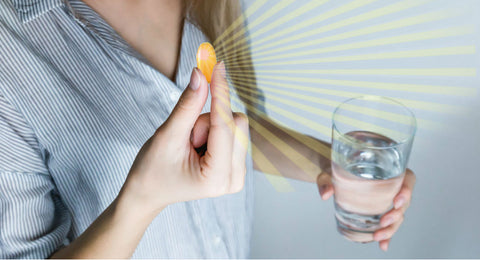









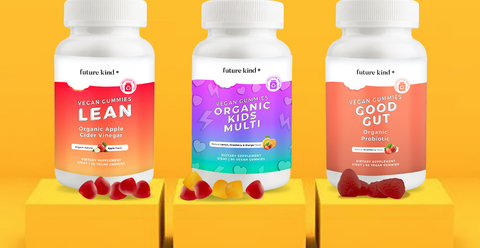
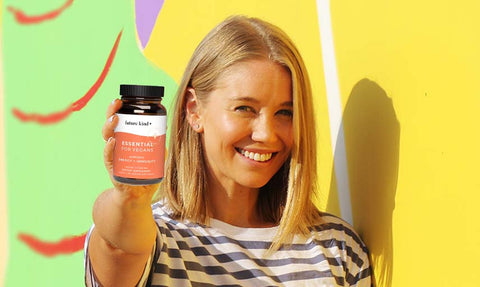
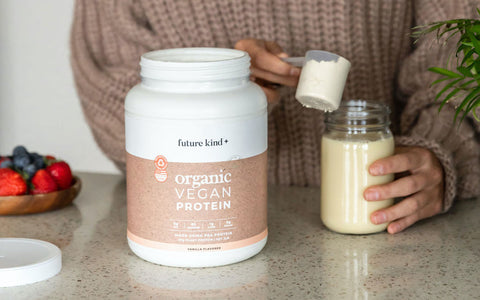
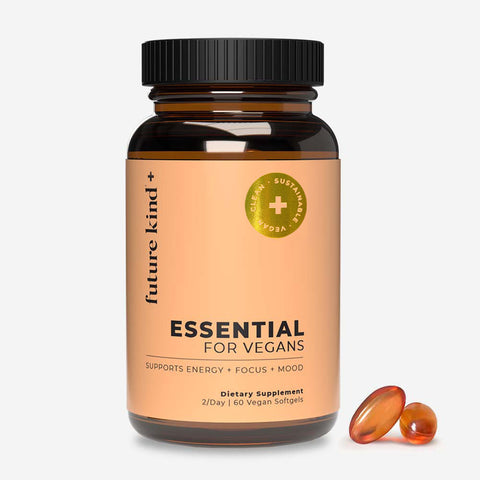
Comments (0)
There are no comments for this article. Be the first one to leave a message!